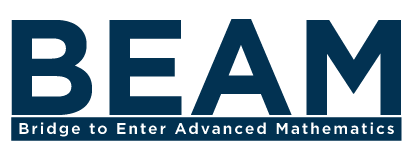Sylvia leads the Young Women’s Empowerment Group while Ayinde organizes the Young Men’s Empowerment Group. Sylvia and Ayinde share their thoughts on this special project, why they launched it, and what they have learned so far.
What is an empowerment group?
Ayinde: So I think for me, the core of it is, identifying your own viewpoints and your thoughts on yourself and where you stand in society at large. Because I think, especially at the time around high school (college too), there are so many factors that go into how you see yourself, and so many of those come from outside sources: friends, family, media. The point of an empowerment group is to center that, so that the primary source is internal, the primary source is coming from you.
Sylvia: For the women’s empowerment group, that [title] is word for word what we are trying to do; we are trying to empower women. I look back on myself in high school and I think if I had had a support group like that I would have been more confident. Girls are raised to be careful, and boys are raised to take risks. So we have conversations about this within group, and the goal is for them to feel empowered to do anything that they want to do regardless of gender. But also it is a safe space. So I think it is a very therapeutic space. But also a space for them to feel empowered to reach their goals, and reach their potential. I want them to get to a point where they want to accomplish goals not because they are perfect but because they are brave and want to do these things for themselves.
Why empowerment groups? How did you get this idea?
Sylvia: As the social worker in the office, and at first as the only not mathematical person in the office, it felt like BEAM was missing something and there was something in my toolbox that I could add. And so I was helping a student with a summer program application, and I really encouraged her and kinda pushed her. She got in and she said it was great, but privately she told me about a actually really traumatic experience that happened during the program. It got me thinking about what we do here at BEAM and how we sometimes put them [students] into places where they are the only one (race or gender), and it made me think about how we can support our students more holistically. And so I sat down with Ayinde.
Ayinde: Having experience with another non-profit (as an Oliver scholar), and part of my experience then was them preparing us to be in spaces where you are going to feel like an outsider or an outcast. So having had that experience coming to BEAM, I knew we needed to move in the direction of grafting conversations like that. But it wasn't until my conversation with Sylvia that I started to see how we can go about having those conversations. The other part was I went to an all boys middle school. So I have had thoughts about boys and how they perceive their ideas about manhood and how those ideas grow, and I wanted to have space to talk about grafting one's identity for a very long time.






